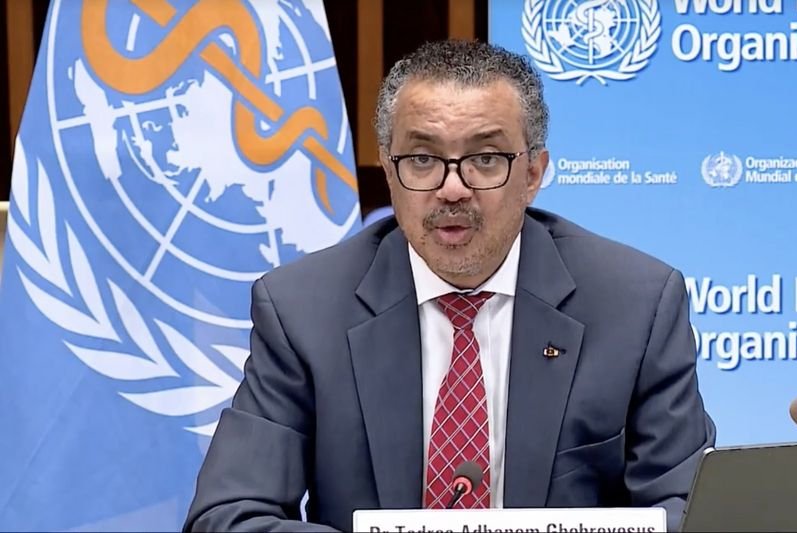World Health Organization Director General Tedros Adhanom Ghebreyesus said Monday that the coronavirus was probably at a tipping point where it would cause fewer people to become seriously ill or die. File photo by World Health Organization/ Twitter
Jan. 30 (UPI) -- The COVID-19 pandemic may be approaching an ''inflection point'' where increased immunity levels may limit the impact of the virus on morbidity and mortality, the World Health Organization said Monday.
The 170,000 COVID-19-related deaths reported globally within the last eight weeks meant that the pandemic remains a public health emergency of international concern, WHO Director General Tedros Ghebreyesus said, while adding that it was probably at a transition point.
However, the organization warned that despite what it called a ''decoupling'' between infection and severe disease seen with the Omicron variant, coronavirus was here to stay and that now was not the time for public health authorities around the world to relax.
''There is little doubt that this virus will remain a permanently established pathogen in humans and animals for the foreseeable future,'' WHO said at the conclusion of a meeting of its COVID-19 health regulations emergency committee.
''As such, long-term public health action is critically needed. While eliminating this virus from human and animal reservoirs is highly unlikely, mitigation of its devastating impact on morbidity and mortality is achievable and should continue to be a prioritized goal.''
The panel also encouraged WHO to assess and, if necessary, to accelerate the integration of COVID-19 surveillance into the Global Influenza Surveillance and Response System.
The committee issued a number of temporary recommendations including asking countries to maintain vaccination momentum to achieve 100% coverage of high-risk groups; incorporating COVID-19 vaccines into routine primary care; improving disease surveillance using techniques such as testing human wastewater; and maintaining resilient healthcare systems to avoid what WHO termed "a panic-neglect cycle".
WHO also recommended states continue to fight misinformation that undermined trust in vaccines and other countermeasures and to adjust international travel restrictions based on risk assessment. The organization stressed travel measures should not automatically require proof of vaccination against COVID-19 as a prerequisite for international travel.















